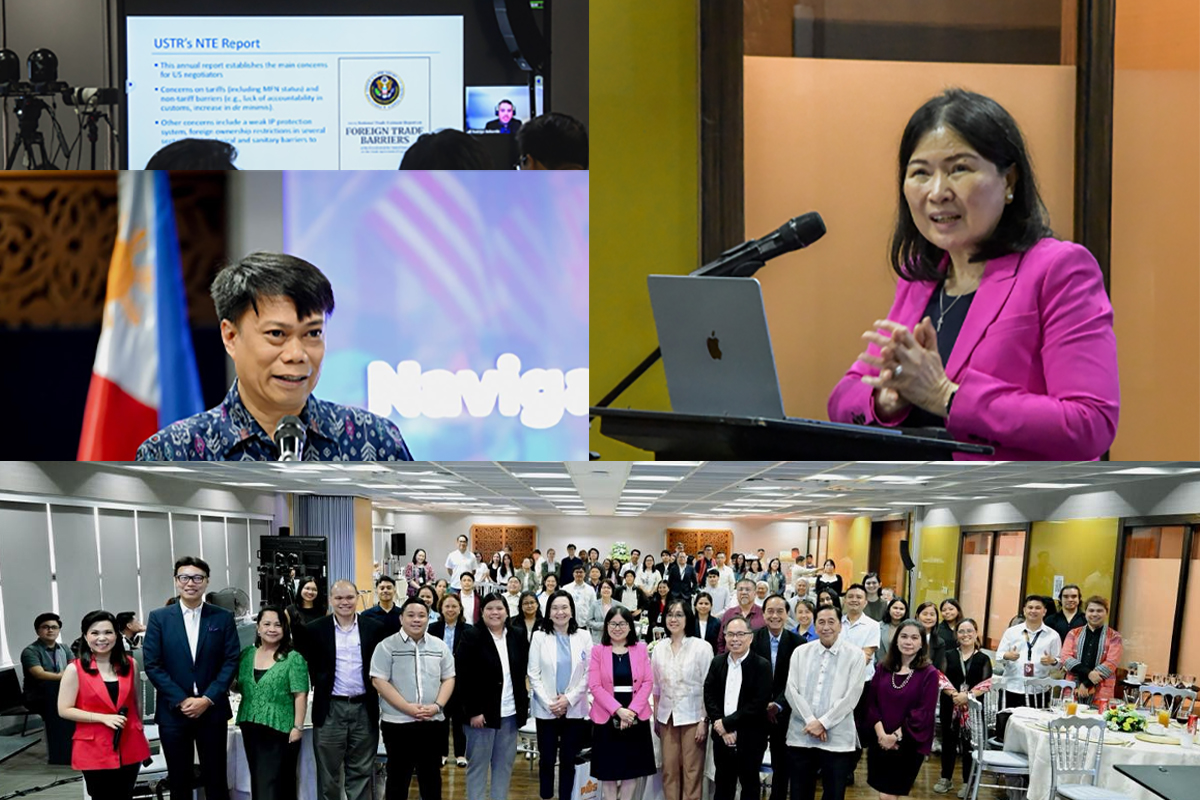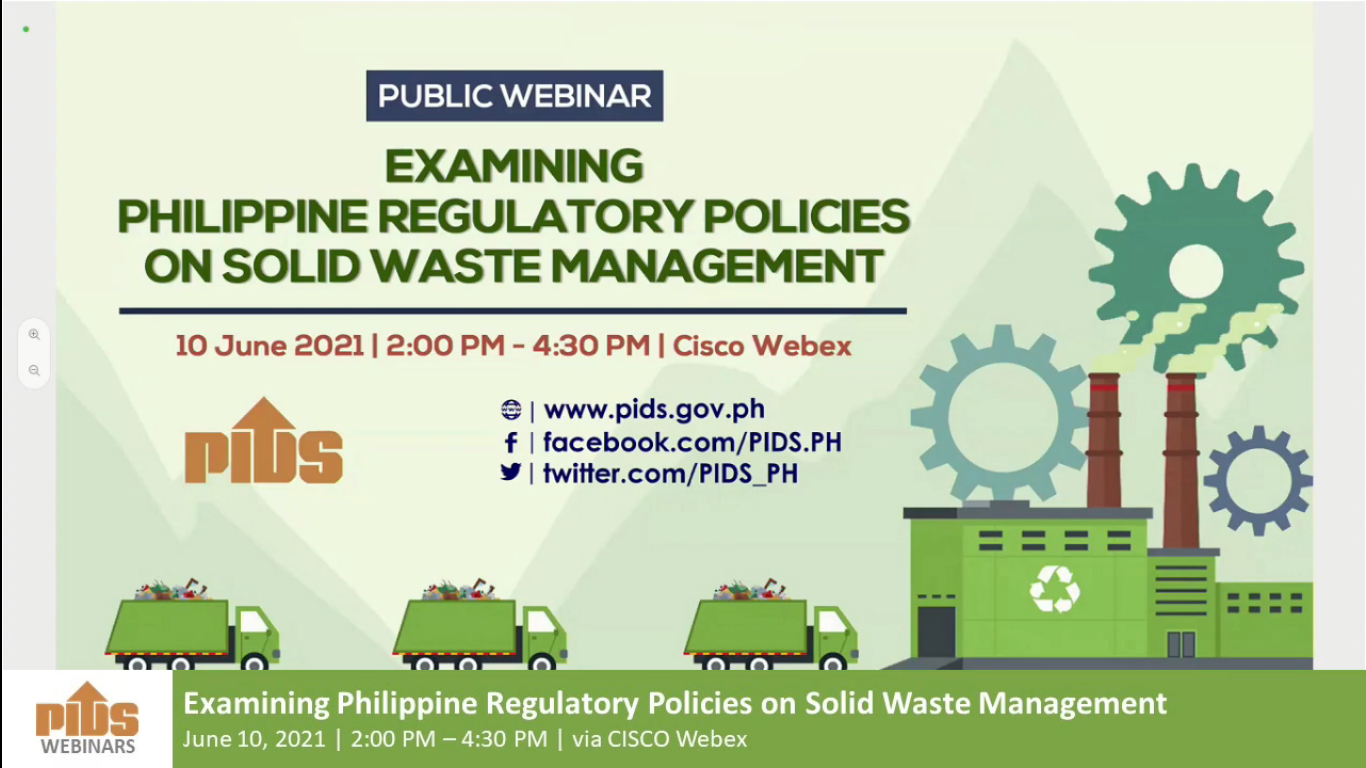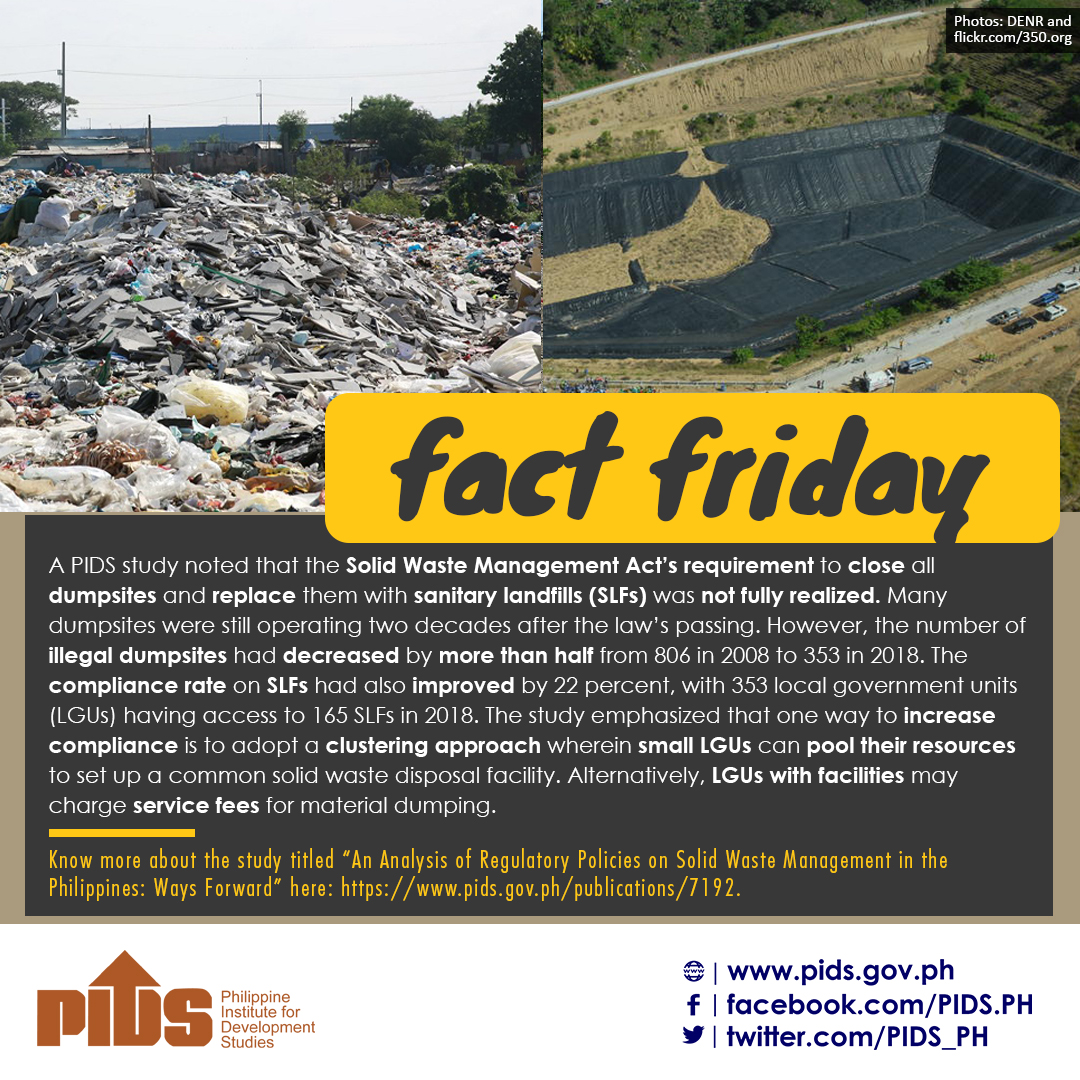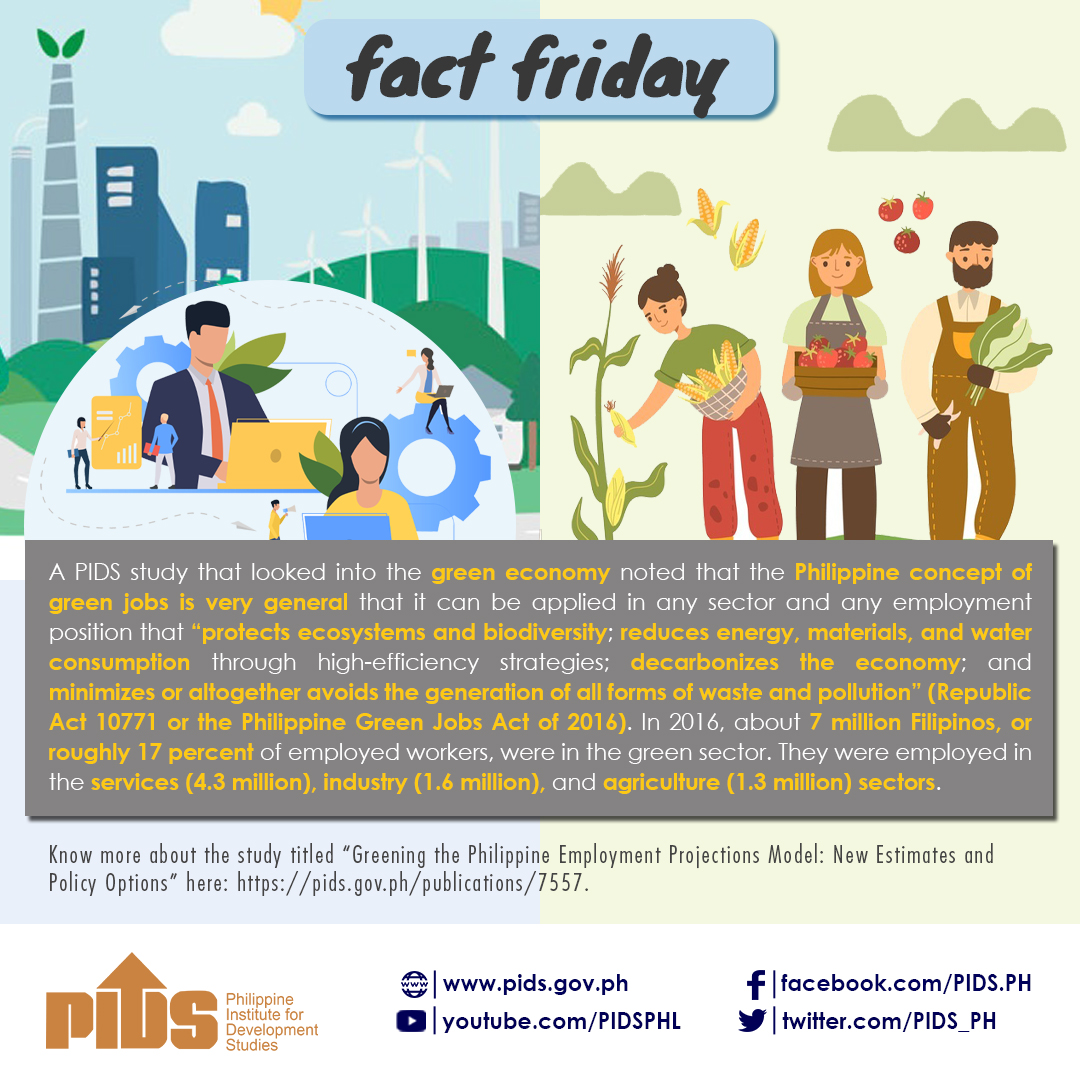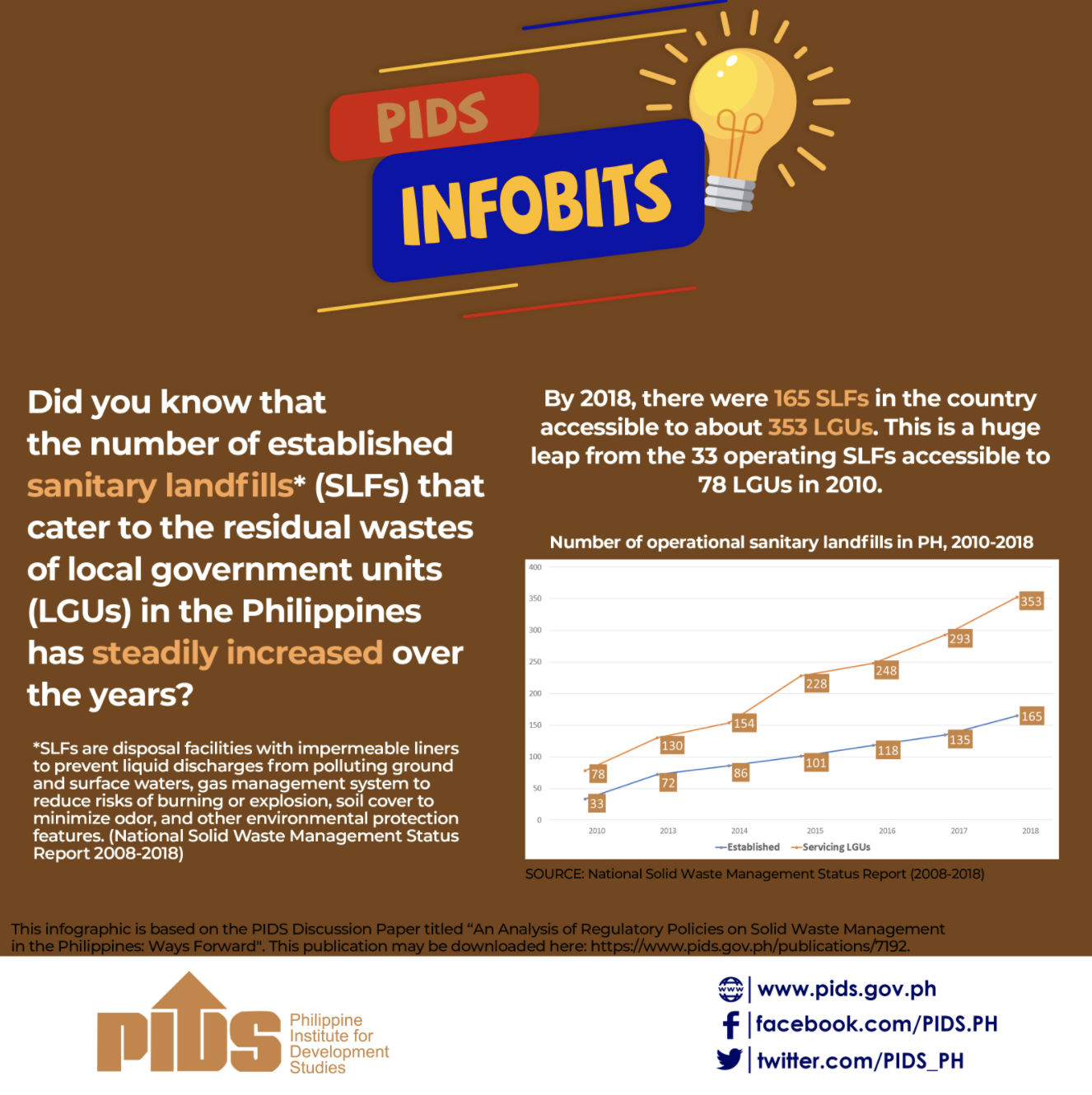THE Philippines should work harder at hastening industrialization which could create high-value and high-paying jobs, according to Philippine Institute for Development Studies (PIDS) Research Fellow and former Trade Undersecretary Rafaelita M. Aldaba.
At a forum on Tuesday, Aldaba explained that while the services sector has been the “vital source” of value-added and employment in the Philippine economy for many decades now, the manufacturing sector has been “stagnant.”
“In fact, we have been de-industrializing prematurely and...where will our people go? Naturally, it’s the services sector that absorb entrants to the labor force as well as those that are moving out from the low- productivity as well as agricultural sector,” Aldaba said.
With this, she emphasized the need to “take a look at the composition of the entire services sector,” which is primarily driven by Wholesale and Retail including the Repair of Cars and Motorcycles.
Data from the Philippine Statistics Authority (PSA) showed the Services sector posted a 6.3-percent growth in the first quarter of 2025.
Wholesale and retail trade; repair of motor vehicles and motorcycles, which grew by 6.4 percent, had the highest contribution to Services’ growth.
This was followed by Financial and insurance activities and Transportation and storage, with growth rates of 7.2 percent and 9.8 percent, respectively, PSA noted.
“The growth in Trade was mainly driven by Retail trade, except motor vehicles and motorcycles, which comprised 81.3 percent of the total Trade. For Financial and insurance activities, Banking institutions was the highest contributor to the sub-industry’s growth, while Land transport contributed the most to the growth in Transportation and storage,” PSA added.
Aldaba explained: “They comprise the bulk of our services sector and not to belittle this sector but these are low value-added activities and low-paying jobs.”
While she deemed the services sector “important,” she pointed out: “But then again, we have to also grow the manufacturing sector, be industrialized because that’s where the highvalue and high-paying jobs are.”
Given the structure of the Philippine economy, particularly the country’s “strengths” in technology-driven activities like in the IT and Business Process Management (IT-BPM) sector, Aldaba said this should be utilized to integrate services into manufacturing.
“We’re looking into the ‘servicification’ of the manufacturing industry because right now manufacturing is no longer the traditional manufacturing sector as we knew it in the past,” added Aldaba.
The former Trade undersecretary also explained that integrating services into manufacturing would mean addressing the job-skills mismatch in the country.
“Of course, we emphasize the need for human investing in our human resources and that’s a vital element of the industrial strategy. We really need to ensure that we’re able to address the job-skills mismatch and at the same time of course our education system needs to be ready to provide the skills and the competencies that will be needed by industries,” added Aldaba.





